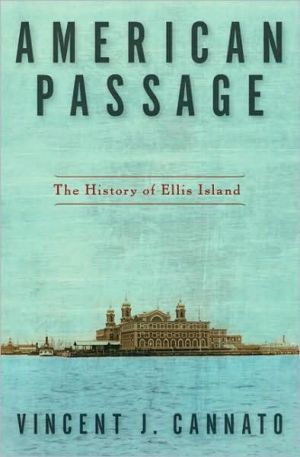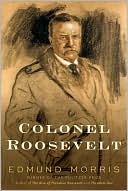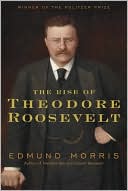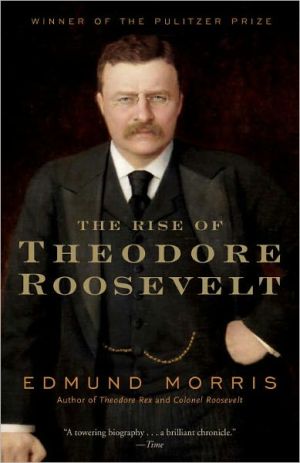American Passage: The History of Ellis Island
For most of New York's early history, Ellis Island had been an obscure little island that barely held itself above high tide. Today the small island stands alongside Plymouth Rock in our nation's founding mythology as the place where many of our ancestors first touched American soil. Ellis Island's heyday—from 1892 to 1924—coincided with one of the greatest mass movements of individuals the world has ever seen, with some twelve million immigrants inspected at its gates. In American Passage,...
Search in google:
For most of New York's early history, Ellis Island had been an obscure little island that barely held itself above high tide. Today the small island stands alongside Plymouth Rock in our nation's founding mythology as the place where many of our ancestors first touched American soil. American Passage captures a time and a place unparalleled in American immigration and history, and articulates the dramatic and bittersweet accounts of the immigrants, officials, interpreters, and social reformers who all played an important role in Ellis Island's chronicle. In this sweeping, often heart-wrenching epic, Vincent J. Cannato reveals that the history of Ellis Island is ultimately the story of what it means to be an American. The Washington Post - Jonathan Yardley Cannato…has written a popular rather than scholarly history of Ellis Island, but he resists the temptation to sentimentalize the place. He understands that, now as then, immigration is an issue that leaves Americans uncomfortable and contentious, even as it continues to bring new blood and energy into the country. Ellis Island may have been converted into something of a feel-good theme park, but the questions it raises remain unresolved.
\ Walter Isaacson"The story of America is one of immigration. By bringing us the inspiring and sometimes unsettling tales of Ellis Island, Vincent Cannato’s American Passage helps us understand who we are as a nation."\ \ \ \ \ Douglas Brinkley"Reading Vincent Cannato’s American Passage was an amazing journey into our nation’s immigrant past. Never before has Ellis Island been written about with such scholarly care and historical wisdom. Highly recommended!"\ \ \ Jay Winik"Immigration has long been a critical slice of the American narrative, and here, in American Passage, Vincent Cannato tells its story with great brio. From landing point to national Monument, from immigrants to interpreters, we see the veritable Babel of Ellis Island play out across the years."\ \ \ \ \ Walter A. McDougall"To his great credit Cannato does not pretend to answer our tough questions about immigration, nor to find a ‘usable past’ in the history of Ellis Island. He just tells one heck of a story that oozes with relevance."\ \ \ \ \ Kenneth T. Jackson"Although Ellis Island is about immigrants from far-away places, it is in fact as American as Thanksgiving and apple pie. This amazing story is recounted beautifully in Vincent Cannato’s well-written and evocative book, which will bring pleasure and profit to readers."\ \ \ \ \ Jonathan Yardley"Cannato resists the temptation to setimentalize Ellis Island. He understands that, now as then, immigration is an issue that leaves Americans uncomfortable and contentious, even as it continues to bring new blood and energy into the country."\ \ \ \ \ The New York Post"Cannato does a masterful job of weaving together a slew of singular immigrant stories with the larger issues that surrounded newcomers. He gives us the politics, the health scares and epidemics, the crowding, the corruption and the public policy."\ \ \ \ \ The Wall Street Journal"Mr. Cannato’s writing is vivid and accessible, and his approach is admirably even-handed."\ \ \ \ \ USA Today"Historian Vincent Cannato appears to have overlooked nothing in telling the tale of the historic island, now a national monument. . . . Cannato is not only a meticulous researcher and historian, he’s also a lively storyteller. A rare combination."\ \ \ \ \ Associated Press Staff"Cannato navigates the crosscurrents of immigration since the 1700s, illustrating his tale generously with odd facts and highly readable stories."\ \ \ \ \ Jonathan YardleyCannato…has written a popular rather than scholarly history of Ellis Island, but he resists the temptation to sentimentalize the place. He understands that, now as then, immigration is an issue that leaves Americans uncomfortable and contentious, even as it continues to bring new blood and energy into the country. Ellis Island may have been converted into something of a feel-good theme park, but the questions it raises remain unresolved.\ —The Washington Post\ \ \ \ \ Library JournalUsing a variety of primary sources, Cannato (The Ungovernable City) describes Ellis Island as a place and as an experience for the approximately 12 million immigrants who passed through it from 1892 to 1924. He follows its reincarnation as a detention center for wartime aliens and as a monument and museum, which he admits may celebrate uncritically "ethnic triumphalism" and upward mobility. Cannato writes that understaffing resulted in only perfunctory screening for mental, physical, and moral traits that might have made newcomers public charges, and he disabuses readers of the fallacy that examiners, rather than steamship officials or immigrants bent on assimilation, changed entrants' last names. With a focus on how "actual people created, interpreted, and executed immigration laws," Cannato maintains that regulation, which sometimes degraded into restriction, formed part of Progressive era reform and growing federal involvement to safeguard what was deemed the public interest. This measured book helps to place in perspective discussions-sure to matter to genealogists and those engaged in political discourse-of Ellis Island and the idea of immigration as a privilege rather than a right. Essential reading.\ —Frederick J. Augustyn Jr.\ \ \ \ \ \ Kirkus ReviewsA sweeping history of "the place where the United States worked out its extraordinary national debate over immigration for over three decades."Approximately 12 million immigrants passed through Ellis Island from 1892 to 1924, writes Cannato (History/Univ. of Massachusetts, Boston; The Ungovernable City: John Lindsay and His Struggle to Save New York, 2001). The last immigrant was processed there in 1954, and Ellis Island is now a national monument. The author reaches back to the island's beginnings in the early 19th century, when, then named Gibbet Island, it served as a venue for hanging convicted pirates. Cannato then chronicles the many different people-immigrants, immigration officials, politicians and others-who made Ellis Island what it was in the early 20th century, delving into the stories of several important individuals lost to mainstream history. These include Prescott Farnsworth Hall, founder of the 19th-century Immigration Restriction League, and Louis Post, who, as acting Secretary of Labor in 1920, prevented the deportation of several individuals during an early Red Scare. Cannato also addresses the long-lasting political debate over immigration in the United States, which was often rooted in economic concerns, particularly during the Depression. In one fascinating section, the author looks at two contradictory 1892 reports, commissioned by Benjamin Harrison's administration, on the plight of Russian Jewish immigrants. One report discussed in detail how the immigrants came to America to flee brutal persecution, while another claimed they were simply paupers and criminals scheming to take jobs away from "native-born" workingmen. Indeed, such bigotry is an unfortunatelycommon theme. Cannato describes an 1896 editorial cartoon that shows the xenophobia that faced new arrivals-a crude sketch of a sickly immigrant carrying baggage marked "Poverty," "Disease," "Superstition" and "Anarchy." Telling details illuminate the vastness of the immigrant experience. So many people came through Ellis Island in 1906, for example, that "it witnessed 327 deaths, 18 births, 2 suicides, and 508 marriages."Ambitious in scope and rooted in solid storytelling.\ \ \ \ \ Associated Press“Cannato navigates the crosscurrents of immigration since the 1700s, illustrating his tale generously with odd facts and highly readable stories.”\ \








